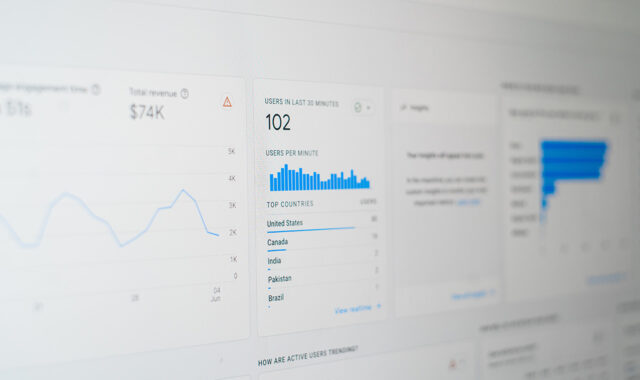SEO | The importance of dwell time and site engagement
If you’re still unsure about where to start, we can help.
With our free tips and guidance, you can build a better digital marketing setup. But if you don’t have the time or resources to manage it all on your own, we can support you. Get in touch to find out how.
If you’ve been learning about SEO and Google analytics, you would have come across the terms, ‘dwell time’ and ‘engagement’ at certain points. They’re used to measure your website performance. This article will take a closer look at them.

What’s dwell time?
Dwell time is the time a visitor spends on your page before heading back to the search engine result page (SERP). This sheds light on what your visitors think about your page. If they had spent more time on it, they must have found the page valuable and engaging. But if they didn’t, you might need to improve your overall SEO strategy, content, and page layout.
As you get more time-related data to analyse, you will be able to identify the average time most of your converting visitors spend on a page. Also, you will know if most of your visitors spend less time on specific pages. Knowing this information is invaluable as it will help you explore and identify possible improvements to these pages.
Indirectly, the more dwell time a visitor has on a page positively impacts your SERP ranking. Indirectly, because search engines like Google have clarified that dwell time isn’t a ranking factor. But this doesn’t subtract from the importance of this performance measurement.


Support Services
Explore our services to see how we can support you.
We work with clients of all sizes, ambitions, and expectations, and with budgets that start from as little as £150pm to over £1.5m each year. Explore our simple-to-understand packages that take the pressure off, so that you can focus on what you do best.
2. What’s site engagement?
Site engagement is the actions visitors take while on your website. This analysis includes various performance indicators that allow you to determine if your page offers value to your visitors and which areas to improve.
They include:
- Call to action (likes, comments, subscription, reshare, downloads, etc.).
- Purchase.
- Bounce rates.
- Average session duration.
- New vs. returning customers.
Conversely, search engines use site engagement to decide if a page meets their searchers’ queries. According to Google 2019 algorithm update, there’s an increased focus on metrics that indicate whether a user has been happy or not with a search result.
So, you should have tools like Google Analytics installed on your website. Also, ensure your site is interactive enough to generate this data. Include relevant calls-to-action on your blogs, services, and product pages. In time, these simple improvements will have a positive impact on visitors’ dwell time and engagement, so are well worth investigating and implementing.

Get a free website health-check.
Find out if your website is depriving you of visitors. Request our free website health-check to identify common issues with speed, user experience, and performance. We’ll deliver this in a clear report along with some basic recommendations and quick fixes.
Learn more about health-checks
Frequently asked questions
-
Growing a social business account that encourages healthy conversations between users and your brand deepens their relationship with you. This, in turn, builds brand loyalty, recommendations, and higher sales. Here are a few ways to nudge your audience to chat with you.
-
SEO is constantly changing. Every year, Google makes over 400-500 algorithm updates to improve search results. Here are some things you should do or avoid to rank better.
-
Absolutely, we’ve listed 5 free online tools that you should explore for your content design needs. Check them out!
Start a Conversation
Request a call-back to see how we can support your digital growth.















